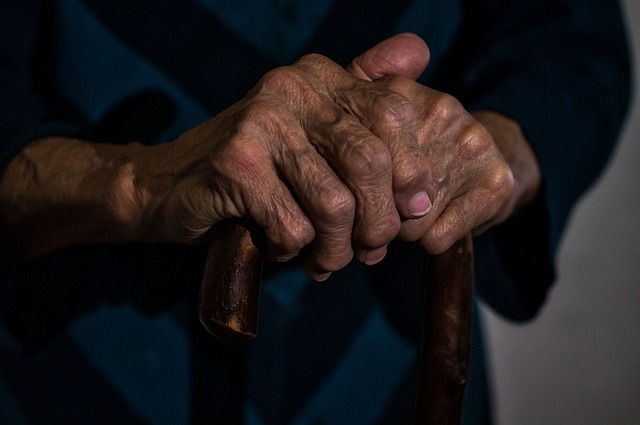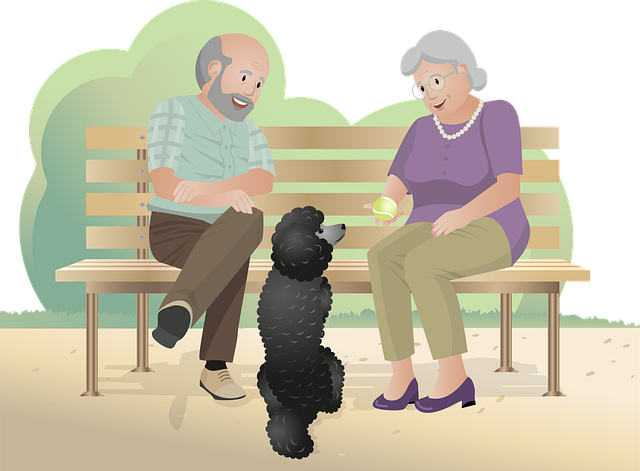Elderly companion services are vital for seniors, providing consistent and meaningful engagement that supports their mental and emotional well-being. These services help mitigate the risks of social isolation, which can lead to negative health outcomes for elderly individuals living alone or dealing with mobility issues. They offer more than mere companionship; they actively contribute to preserving cognitive function through regular interaction and can significantly reduce feelings of loneliness and depression. The trained companions not only nurture emotional bonds but also encourage seniors to engage in social activities, fostering a sense of community and belonging. This human connection is instrumental in improving the quality of life for the elderly by keeping them integrated and active members of society. These services are essential for maintaining the independence and dignity of older adults as they age at home, ensuring they receive the support and connection necessary for their health and happiness. The effectiveness of these programs underscores their importance as a vital component in the holistic care of the aging population.
companionship for the elderly is a vital aspect of maintaining their mental and emotional health, especially as social circles naturally contract with age. Elderly companion services emerge as a beacon in combating loneliness among seniors, offering structured engagement and a sense of connection. This article delves into the transformative power of meaningful visits and the profound impact they can have on the well-being of lonely elders. We will explore the importance of social interaction for the elderly, the role of these services in addressing isolation, strategies for planning impactful visits, and how regular friendly interactions contribute significantly to their quality of life. Understanding these facets is crucial for fostering a supportive environment that honors the golden years with dignity and companionship.
- Understanding the Importance of Social Interaction for the Elderly
- The Role of Elderly Companion Services in Combating Loneliness
- Planning Meaningful Visits for Lonely Seniors
- Enhancing Lives: The Impact of Regular Friendly Visits on Elderly Well-being
Understanding the Importance of Social Interaction for the Elderly

Engaging in social interactions is a cornerstone of mental and emotional well-being for individuals at every stage of life, and this is particularly true for the elderly. As people age, they often face challenges that can lead to social isolation, such as the loss of peers, mobility issues, or living alone. This isolation can have detrimental effects on both their physical and mental health. Elderly companion services play a vital role in mitigating these risks by providing regular, meaningful engagement. These services not only offer companionship but also help maintain cognitive function through social stimulation. The interaction with trained companions can enhance the quality of life for seniors by fostering emotional connections, encouraging social activities, and promoting a sense of belonging and community. This consistent human contact can reduce feelings of loneliness and depression, while also keeping the elderly connected to the world around them, ensuring they remain active participants in their own lives. Through elderly companion services, seniors can enjoy the companionship that is essential for their health and happiness, allowing them to thrive in their golden years.
The Role of Elderly Companion Services in Combating Loneliness

Elderly companion services play a pivotal role in addressing the pervasive issue of loneliness among the elderly population. These services are designed to provide consistent, meaningful interaction for seniors who may live alone or have limited social networks. By matching compassionate volunteers or professional companions with isolated individuals, these programs offer not just company but also a sense of belonging and community. The companions engage in various activities tailored to the elder’s interests, from sharing conversations to participating in hobbies and outdoor excursions, thereby enriching their daily lives and promoting mental well-being. This human connection is instrumental in improving the overall health and happiness of seniors, often leading to a reduction in depression and anxiety, and even mitigating the risks associated with social isolation. The role of these services extends beyond mere companionship; they are a lifeline that supports the independence and dignity of older adults, allowing them to age with grace and support within their own homes.
Planning Meaningful Visits for Lonely Seniors

Engaging with elderly individuals who live alone can significantly uplift their spirits and contribute to their overall well-being. Meaningful visits go beyond brief check-ins; they involve activities that are tailored to the senior’s interests, abilities, and past experiences. Planning such visits requires thoughtfulness and a genuine desire to connect on a personal level. For instance, elderly companion services often curate activities that resonate with the elder’s history and preferences, whether it’s reminiscing about old photographs, sharing stories from their youth, or teaching them new skills. These visits can also include interactive games, crafts, or even outdoor activities if the senior’s health permits. The goal is to create a comfortable environment where elders feel heard, valued, and connected to others. By focusing on shared interests and fostering meaningful interactions, these services not only alleviate loneliness but also enrich the lives of seniors by providing them with companionship and a sense of belonging.
The benefits of such visits extend beyond emotional support; they can have tangible effects on the physical and mental health of the elderly. Regular interaction with visitors from elderly companion services can help maintain cognitive function, reduce the risk of depression, and even lower blood pressure. These visits are an investment in the health and happiness of seniors. By actively listening to their concerns, sharing in their daily lives, and encouraging social engagement, these services empower elders to live a more fulfilled and connected life, enhancing their quality of life significantly.
Enhancing Lives: The Impact of Regular Friendly Visits on Elderly Well-being

Regular friendly visits from elderly companion services significantly contribute to the emotional and psychological well-being of seniors, particularly those living alone. These interactions offer a sense of connection and belonging that can alleviate feelings of loneliness and isolation often experienced by the elderly. The presence of compassionate visitors not only provides companionship but also serves as a deterrent against social withdrawal, which is detrimental to an individual’s health. Studies have shown that consistent engagement with elderly companion services can lead to improved mental health, reduced depression, and a heightened sense of purpose for older adults. Moreover, these visits often extend beyond mere conversation; they encompass activities that stimulate cognitive function, such as playing games, reminiscing about past experiences, or sharing stories, which are beneficial for maintaining mental acuity. The positive impact of these services is evident in the enhanced overall quality of life for seniors, making elderly companion services an invaluable resource for supporting the aging population’s health and happiness.
Regular, meaningful interactions are a cornerstone of maintaining the well-being of our aging population. The elderly companion services play a pivotal role in combating loneliness among seniors, offering a vital lifeline to those who might otherwise face social isolation. By planning visits that cater to the unique interests and experiences of each elder, we can significantly improve their quality of life. The benefits of these friendly engagements extend beyond immediate companionship; they foster a sense of connection, purpose, and joy in the lives of lonely seniors. As we reflect on the significance of this issue, it becomes clear that elderly companion services are not just a service but a compassionate response to a human need. Embracing these programs within our communities is an investment in the health and happiness of our elders, ensuring they are valued and supported as they continue to contribute to the tapestry of society.






